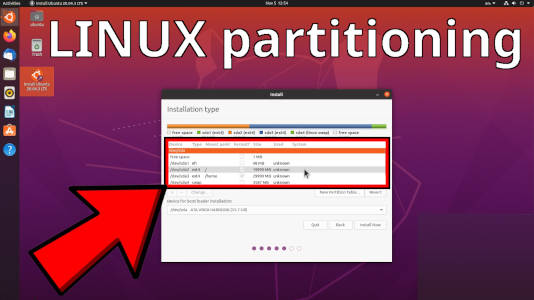Chrisgayle
Member
Hello,
As you know I recently shifted from windows to ubuntu (Linux), so I normally see all this partition things in windows perspective.
So during installation I obviously created basic partition needed like swap (8gb), root (50gb), and efi.
I didn't give any space to home because I find that home is like windows user account space which is "document and downloads" in windows. Normally it needed but if anyone use pc for long time that person doesn't put datas in c drive, I put c drive clean in past because I leave c drive for system use only and put my data everything including downloads in other drive. So same thing I follow in Linux I didn't put any data in home I put it in different drive I created using gparted.
My question is did I do wrong by not giving any partition to "/home" is it compulsory.
I think if /home need some space it takes from root/ because it's location inside root. Like in windows "document and downloads" are inside c drive , so it take space from c drive if needed.
Or am I wrong that /home doesn't take space from root/ if needed.
As you know I recently shifted from windows to ubuntu (Linux), so I normally see all this partition things in windows perspective.
So during installation I obviously created basic partition needed like swap (8gb), root (50gb), and efi.
I didn't give any space to home because I find that home is like windows user account space which is "document and downloads" in windows. Normally it needed but if anyone use pc for long time that person doesn't put datas in c drive, I put c drive clean in past because I leave c drive for system use only and put my data everything including downloads in other drive. So same thing I follow in Linux I didn't put any data in home I put it in different drive I created using gparted.
My question is did I do wrong by not giving any partition to "/home" is it compulsory.
I think if /home need some space it takes from root/ because it's location inside root. Like in windows "document and downloads" are inside c drive , so it take space from c drive if needed.
Or am I wrong that /home doesn't take space from root/ if needed.



